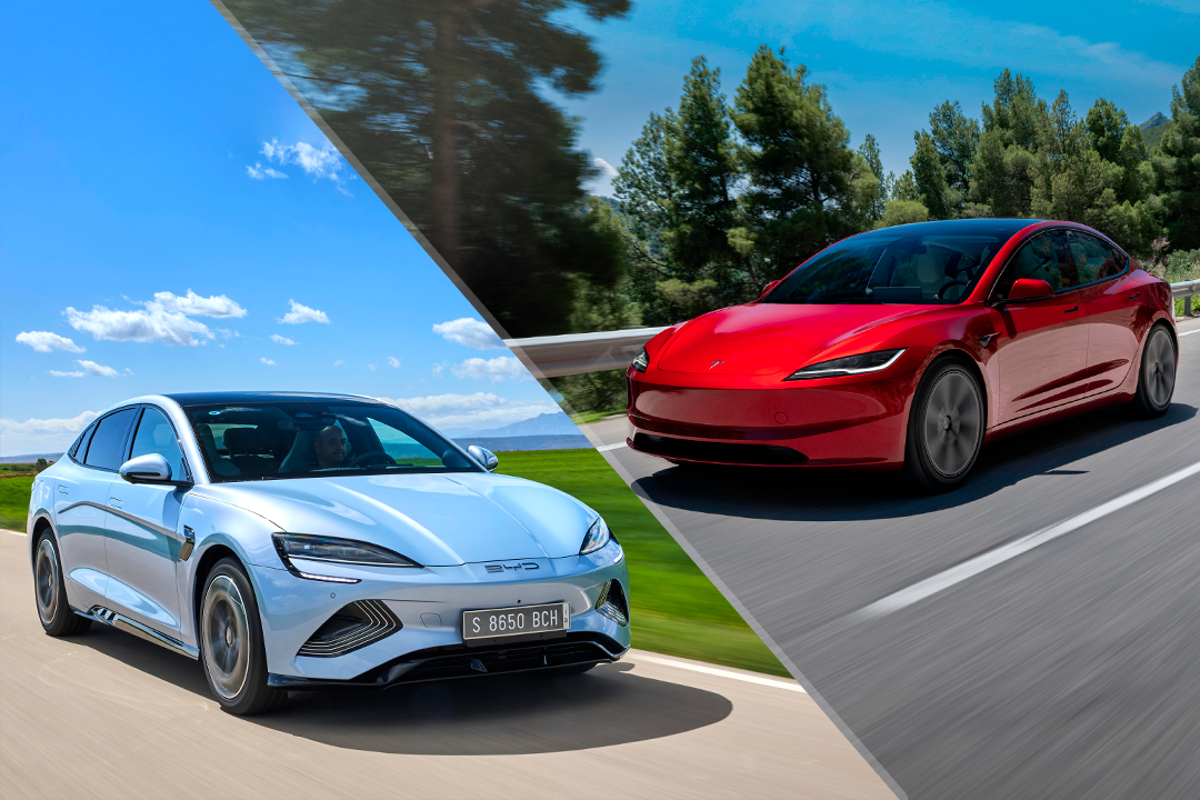Luxury vs. Economy: What Market Research Uncovers About Automotive Brand Perception

Summary
In today’s automotive market, the line between luxury and economy is increasingly fluid, shaped as much by perception as by price or performance. From luxury buyers drawn to exclusivity to economy consumers prioritizing value, and even EVs redefining traditional categories, perception dictates loyalty, purchasing behavior, and brand relevance. By decoding these real-time conversations, RILA empowers automakers to navigate shifting expectations, bridge market segments, and transform perception into measurable performance.
Introduction
The automotive market has always been defined by perception. For some, cars are a status symbol, signaling luxury, performance, and exclusivity. For others, vehicles are a practical necessity, driven by affordability, reliability, and efficiency. The gap between luxury and economy brands isn’t just about price—it’s about consumer perception, lifestyle aspirations, and brand trust.
At RILA Global Consulting, a WBENC-certified women-owned business, we use social listening and market research to decode how consumers talk about luxury vs. economy brands, what drives purchase decisions, and how perception is shifting in real time.
Why Brand Perception Matters in the Auto Industry
Perception shapes everything. It affects pricing power, loyalty, and competitive positioning. Consumers rarely judge cars only on specifications; they rely on emotional connections, brand stories, and peer validation.
- A luxury buyer may be drawn to heritage, craftsmanship, and exclusivity.
- An economy buyer often prioritizes affordability, fuel efficiency, and reliability.
The way these values are expressed in social media, forums, and reviews provides brands with a real-time pulse on how they’re being compared, praised, or criticized.
What Market Research Reveals
1. Luxury = Status + Experience
Luxury brands like Mercedes-Benz, BMW, and Lexus are associated with status, innovation, and prestige. Social listening shows frequent mentions of interior design, advanced technology, and brand heritage. For many consumers, owning a luxury car signals not just wealth but identity.
2. Economy = Practicality + Value
Economy brands like Toyota, Hyundai, and Kia dominate conversations around reliability, affordability, and long-term cost savings. Consumers often view these brands as “smart choices” for families and budget-conscious buyers.
3. Crossovers Blur the Line
Interestingly, social data shows more overlap than ever. Hyundai and Kia, once seen as strictly economy, now generate conversations about style and innovation, challenging traditional luxury narratives. Likewise, luxury brands introducing smaller, more affordable models face criticism about “watering down” exclusivity.
4. EVs Disrupt Both Segments
Tesla has upended traditional categories, simultaneously being seen as a luxury status symbol and a tech-forward economy alternative. Market research shows this duality is confusing competitors and reshaping how consumers categorize brands.
5. Experience Over Ownership
Luxury consumers increasingly emphasize the experience of ownership—white-glove service, brand communities, and tech ecosystems. Meanwhile, economy buyers now expect more premium features, like advanced driver assistance, even in affordable models.
How Social Listening Deepens Understanding
Traditional surveys capture some of these differences, but social listening uncovers nuances in real time:
- Tracking sentiment differences when a luxury brand introduces an entry-level vehicle.
- Identifying economy brand wins when affordable cars outperform luxury rivals in safety or tech.
- Spotting aspirational chatter, where consumers dream of luxury but settle for economy.
- Analyzing regional differences—luxury dominance in urban centers vs. economic loyalty in suburban and rural areas.
This unfiltered consumer perspective allows brands to see how they’re positioned not only in their category but in consumers’ lives.
RILA in Action: Luxury vs. Economy Insights
At RILA, we’ve helped clients uncover insights such as:
- Luxury missteps: One brand’s social buzz dipped after launching an “affordable” line perceived as lowering exclusivity.
- Economy wins: Another economy brand gained credibility when its hybrid outperformed luxury EVs in mileage discussions.
- Consumer crossover: Social conversations revealed that younger buyers aspire to luxury but still demand affordability—opening opportunities for brands that bridge both.
By combining market research with social listening, we help automotive leaders avoid perception pitfalls and capitalize on emerging opportunities.
The WBENC Advantage
Partnering with a WBENC-certified women-owned business like RILA Global Consulting isn’t just about supplier diversity—it’s about gaining access to a team that brings fresh perspectives, diverse insights, and innovative strategies to an industry in transformation.
Automotive companies working with WBENC-certified partners also strengthen their supplier diversity commitments, which increasingly matter to investors, customers, and regulators.
About RILA Global Consulting
At RILA Global Consulting, we empower automakers, dealerships, and suppliers with data-driven insights into consumer perception, competitive benchmarking, and emerging trends. From luxury EV launches to economy brand repositioning, our award-winning methodologies turn complex social and market data into actionable intelligence.
Our WBENC certification reflects our commitment to diversity, innovation, and excellence—values that align with the evolving needs of the global automotive industry.
👉 Ready to uncover how your brand is truly perceived—luxury, economy, or somewhere in between?
Connect with us at RILA Global Consulting to transform perception into performance.
Read More

The Starbucks Effect in Reverse: What Store Closures Reveal About Housing and Community Stability
Once a marker of rising property values and revitalized streets, Starbucks’ retreat now sparks fears of community decline and economic fragility. As residents lament the loss of their local café, they’re really mourning a deeper shift—the unraveling of a familiar urban narrative where growth was measured by the green siren’s glow. In the “Starbucks Effect” reversed, America’s coffee map may be telling a new story about housing, belonging, and the fragile balance between commerce and community.
October 10, 2025
READ MORE

Why Food & Beverage Brands Can’t Ignore TikTok Recipes
The food and beverage industry is no longer shaped solely by glossy ads or in-store promotions — today, viral content and online conversations, especially on platforms like TikTok, drive consumer choices before they ever step into a store or restaurant. Brands that harness social listening and combine it with traditional market research can detect emerging trends, anticipate shifting tastes, and transform fleeting viral moments into lasting growth. At RILA Global Consulting, we turn digital chatter into actionable intelligence, helping companies stay ahead of the curve, innovate products, and craft culturally relevant campaigns that build loyalty and boost sales. In a world where trends can explode overnight, the ability to listen, interpret, and act is the ultimate competitive advantage.
October 3, 2025
READ MORE

How Airlines Can Detect Service Issues Before They Escalate Online
In today’s hyper-digital world, the battle for airline loyalty is no longer fought in loyalty programs or post-flight surveys—it unfolds in real time across TikTok feeds, Twitter threads, and Reddit forums. A single complaint can snowball into a viral crisis, yet the same digital conversations hold the key to preventing service failures and building trust. By merging social listening with market research, airlines can shift from reactive crisis control to proactive service strategy, transforming fleeting frustrations into lasting loyalty. The question is no longer if airlines should listen—it’s whether they can afford not
October 3, 2025
READ MORE

Consumer Insights on Smart Homes and Energy Efficiency
The energy and utilities sector is no longer about static bills and passive consumers—it’s about dynamic, digital-first relationships shaped by real-time conversations. From Reddit threads about thermostats to viral reviews of solar devices, consumers are rewriting the rules of engagement, demanding smarter, greener, and more personalized solutions. Companies that rely only on traditional surveys risk being left behind, while those embracing always-on social listening and market research gain the ability to anticipate needs, spark innovation, and lead the transition toward sustainable living. The question is: will brands continue to react to yesterday’s data, or will they start shaping tomorrow’s energy future today?
October 3, 2025
READ MORE

From Dealerships to TikTok: How Online Conversations Drive Auto Sales
The automotive industry is no longer ruled by showroom floors and brochures; it now thrives in the digital chatter of social media. Platforms like TikTok, Instagram, and Reddit have become the modern dealerships, where viral videos, candid reviews, and peer discussions shape the decisions of an increasingly informed consumer. Brands that harness these online conversations through social listening, analytics, and targeted engagement gain a strategic edge, transforming digital influence into tangible showroom visits and sales. RILA Global Consulting shows that understanding not just what consumers say—but how, where, and when they say it—can redefine the entire car buying journey, turning fleeting social trends into measurable business growth.
September 29, 2025
READ MORE

The Rise of EVs: What Market Research Tells Us About Consumer Adoption Barriers
Electric vehicles are accelerating toward the mainstream, yet adoption is still slowed by tangible and perceived barriers—from charging infrastructure and cost concerns to battery life anxieties and lack of consumer education. While interest is high, hesitations persist, revealing a critical gap between curiosity and purchase. By leveraging social listening and market research, RILA Global Consulting uncovers the nuanced “why” behind consumer reluctance, enabling automakers and dealerships to address fears, correct misinformation, and tailor strategies that turn hesitation into confidence. The future of mobility isn’t just electric—it’s informed, responsive, and insight-driven.
September 29, 2025
READ MORE

Top 10 Automotive Trends Shaping Consumer Decisions Right Now
The automotive industry is undergoing a seismic shift. Consumer expectations are redefining every step of the buying journey—from online research and social media influence to technology, sustainability, and post-sale experiences. As electric and hybrid vehicles accelerate, digital-first shopping dominates, and buyers demand transparency and connected features, brands must adapt quickly or risk falling behind. RILA Global Consulting deciphers these evolving conversations through social listening and market research, helping automakers and dealerships translate complex consumer sentiment into actionable strategies that drive growth, loyalty, and innovation in a rapidly changing automotive landscape.
September 29, 2025
READ MORE

How Social Data Helps Auto Brands Benchmark Against Competitors
In today’s hyper-competitive automotive market, knowing how your brand is perceived by consumers is no longer optional—it’s essential. Traditional sales metrics provide only a partial view, whereas social data reveals real-time consumer sentiment, emerging trends, and competitor vulnerabilities. By harnessing social listening, share of voice tracking, and product perception analysis, auto brands can anticipate market shifts, fine-tune campaigns, and even uncover untapped opportunities. At RILA Global Consulting, a WBENC-certified women-owned firm, this intelligence is transformed into actionable strategies that help automakers not just keep pace, but lead with insight-driven innovation, all while advancing supplier diversity and fresh perspectives in an industry often dominated by tradition.
September 29, 2025
READ MORE

How Automakers Use Social Listening to Design the Cars of Tomorrow
The automotive industry is increasingly leveraging social listening to transform consumer conversations into actionable design insights. By analyzing real-time feedback from social media, forums, and dealership reviews, automakers can identify emerging trends, unmet needs, and feature preferences across every stage of vehicle development—from concept and prototype to launch. Key areas influenced by these insights include in-car technology, EV battery performance, safety systems, interior comfort, and sustainable materials.
September 29, 2025
READ MORE